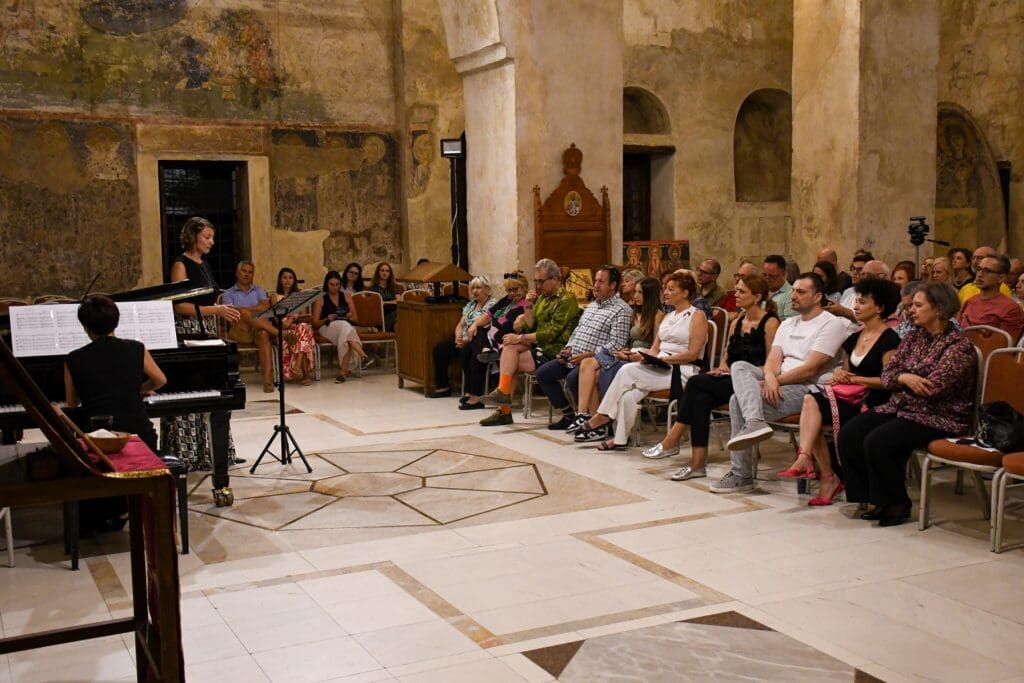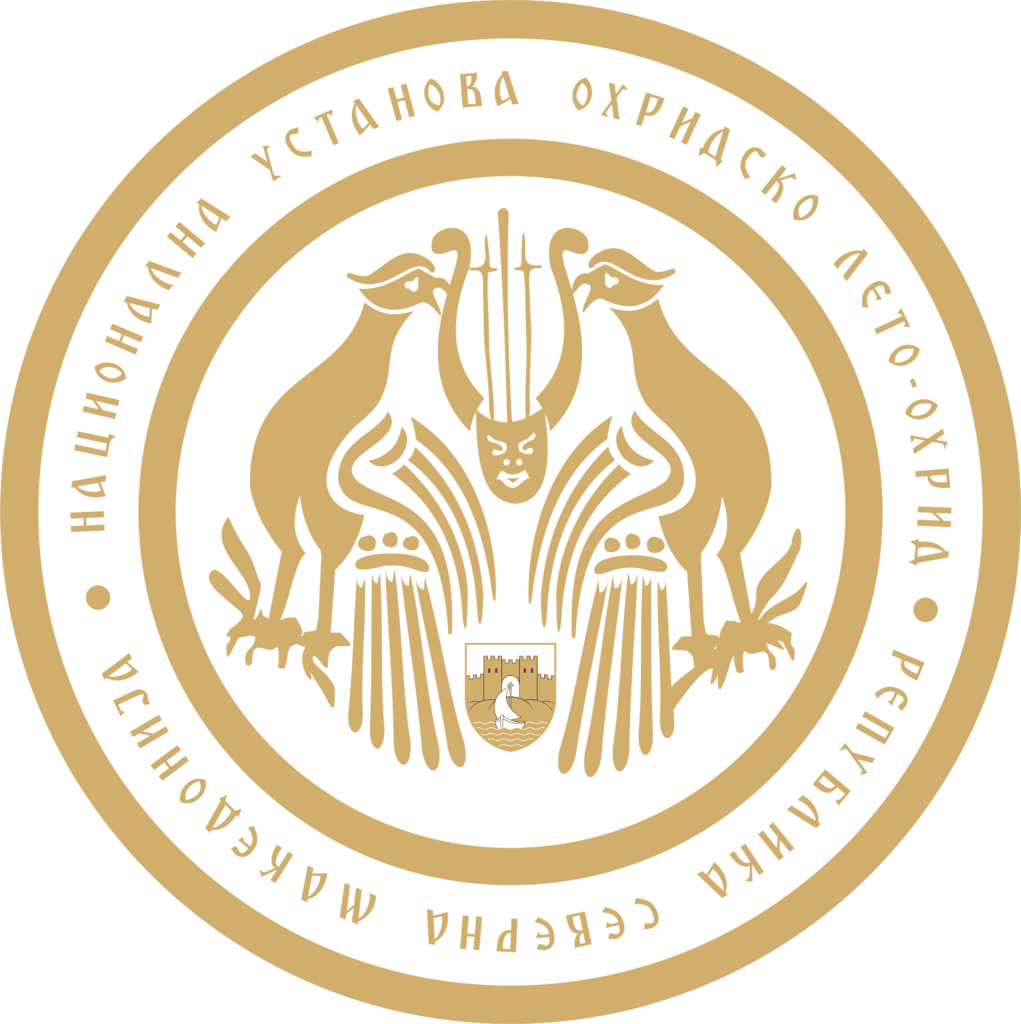Last night, the “Ohrid Summer” festival commemorated the 65th anniversary of the birth of Macedonian composer Goce Kolarovski. The event, titled “Evening Bell,” featured performances by pianists Marija Vrshkova and Marija Gjosevska, violinist Vladimir Kostov, soprano Gonca Bogomorova, and flutist Strasho Temkov. The evening also included a string quartet composed of violinists Eva Bogoevska and Ivana Zdravkova, violist Leona Kondratenko, and cellist Maja Mihajlovska.
The festive repertoire opened with a performance by renowned Macedonian pianist Marija Vrshkova, who played Kolarovski’s piano composition “Evening Bell.”
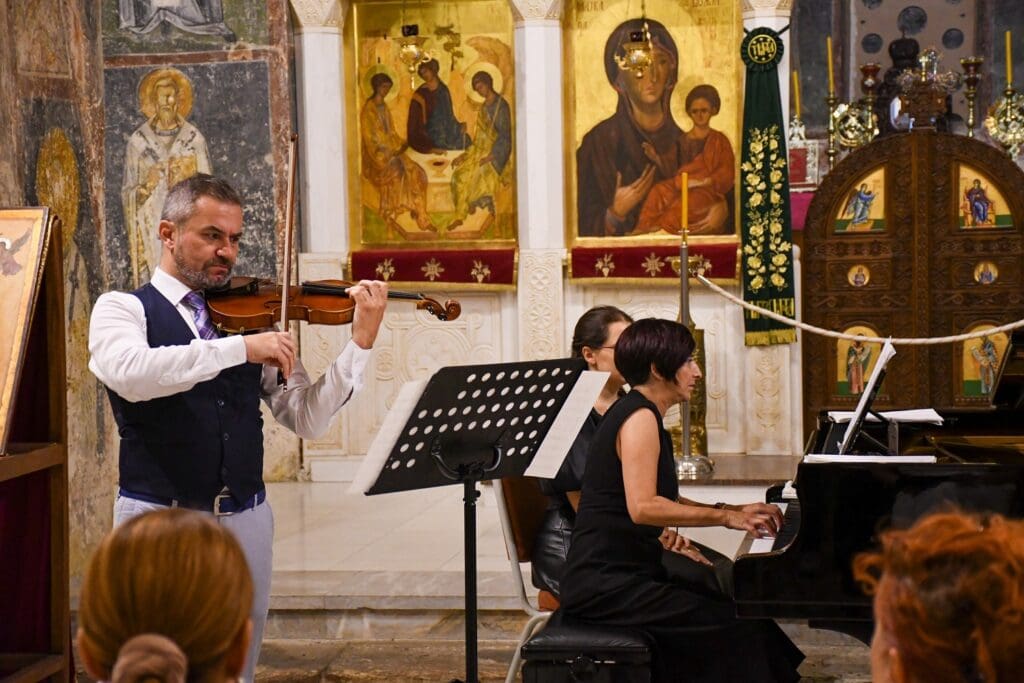
“I performed four pieces at the concert. I started the evening with the composition ‘Evening Bell,’ which the composer and I worked on together during my active time in contemporary music. That is why I have a very emotional connection to this concert, which bears the same title as the piece,” said pianist Vrshkova.
Goce Kolarovski (February 5, 1959 – November 30, 2006) belonged to the generation of Macedonian composers whose creative formation took place during a period of continuous growth in professional music creation and the consolidation of the Macedonian national composer school. He hailed from the well-known Kolarovski family from Skopje – Dračevo, with his grandfather Mile Kolarovski being a prominent performer of the kaval and bagpipes, and a founding member of the national ensemble “Tanec.”
Kolarovski received his composition education at the Faculty of Music Arts in Skopje (class of academician Prof. Vlastimir Nikolovski) and at the “N. A. Rimsky-Korsakov” Conservatory in Saint Petersburg (Leningrad, class of Prof. Sergei M. Slonimsky). He later completed his postgraduate studies with Vlastimir Nikolovski, becoming the first Master of Composition at the Faculty of Music Arts in Skopje.
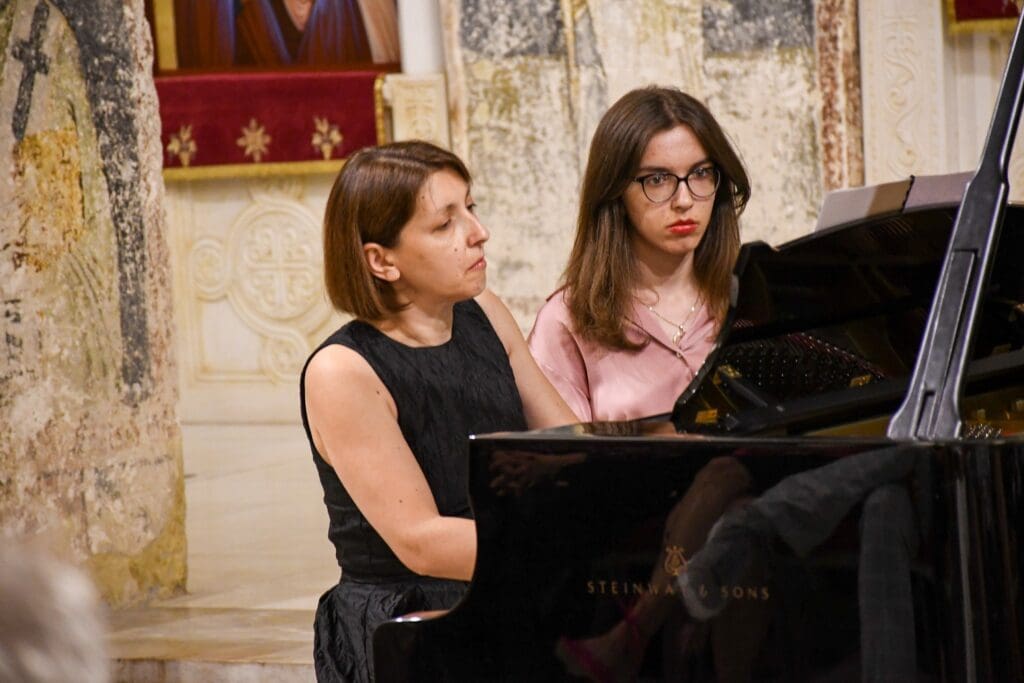
Kolarovski’s work, firmly rooted in national musical tradition (Macedonian musical folklore, ancient Orthodox singing), also reflects various currents of contemporary Western music: the folklorism of Bartok and Stravinsky, and avant-garde techniques through the prism of the Polish school. In his later period, Webern and Ives particularly influenced him – the former’s concentrated expression and rationality, and the latter’s expansiveness and multi-layered content. Kolarovski had a special interest in exploring sound based on the phenomenon of bells, which is a distinctive feature of the soundscape of the Orthodox tradition.
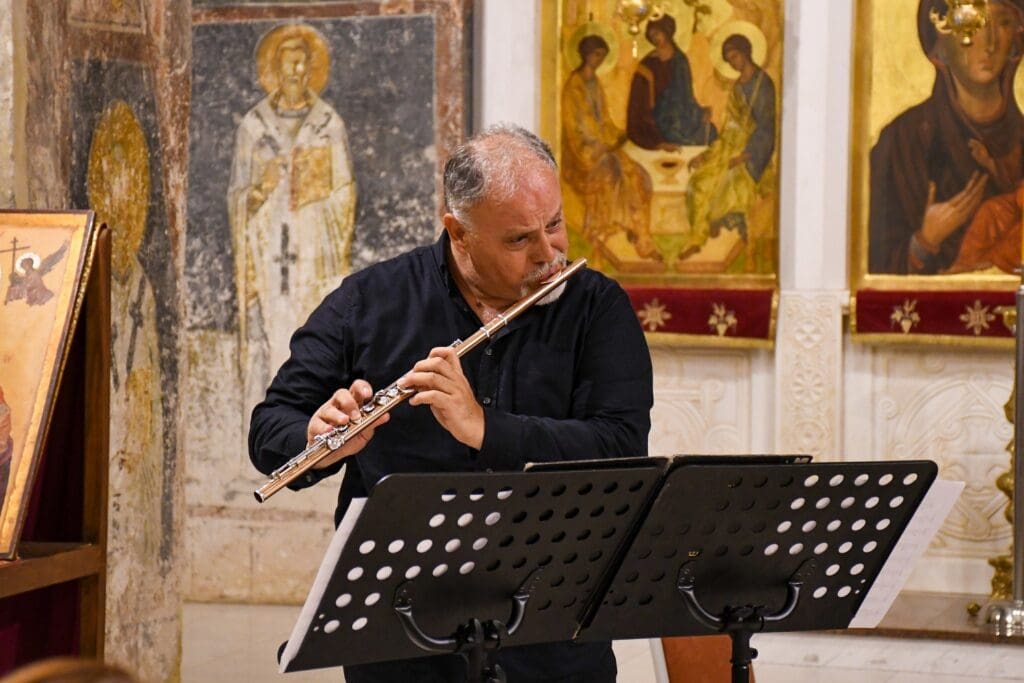
Although not extensive, Kolarovski’s compositional oeuvre includes significant works that are part of the repertoire of musicians and ensembles in Macedonia and beyond. Among them are the Symphony, Concerto for Orchestra, Piano Concerto, the piece “Molitvami” for symphonic orchestra, compositions for string orchestra, various chamber ensembles, and solo instruments. His untimely death left his oeuvre as an open “unanswered question” (the title of a piece by his favorite Ives, whose theme is quoted in the cantata “Voices” on lyrics by T. S. Eliot).
Much of Kolarovski’s work has been recorded by MRT (Macedonian Radio Television) and released on sound carriers by the Union of Composers of Macedonia (SOKOM). Several of his scores have been published by SOKOM as well.
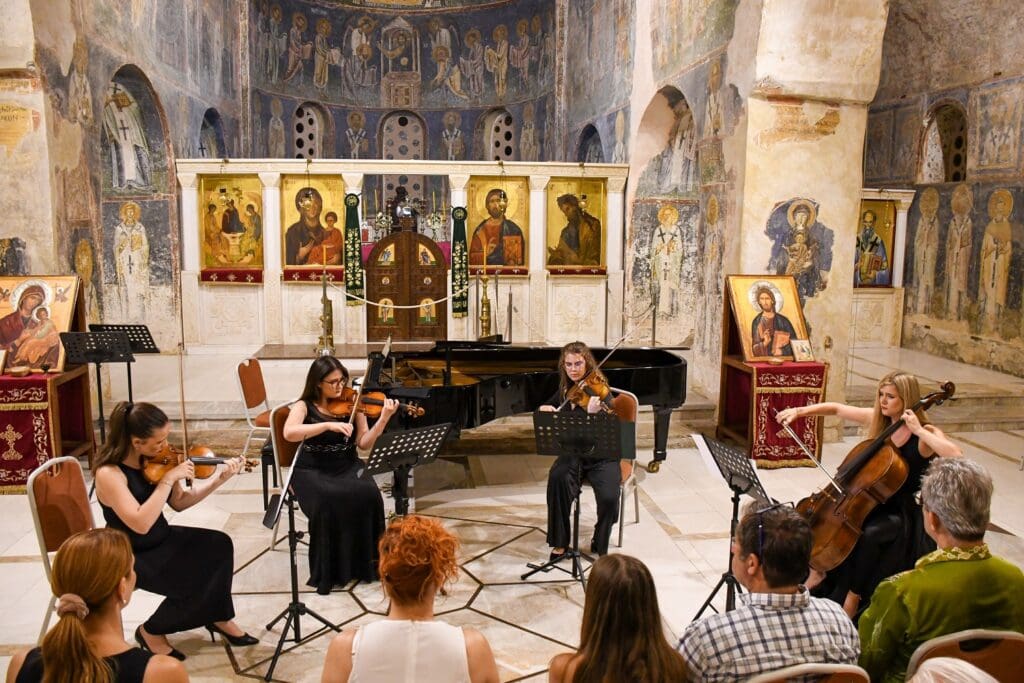
Goce Kolarovski remains a key figure in Macedonian musical culture, a promoter of new ideas, concepts, and standards. As a long-time professor of composition and theoretical subjects at the Faculty of Music Arts in Skopje, and twice its dean, he fostered creativity in young musicians, generously sharing his knowledge and creative energy. He initiated the first international summer schools for composition in Macedonia. His pedagogical work included numerous seminars and master classes, and he was a visiting professor at the Faculty of Arts at the University of Nis. As a scholar and publicist, he promoted new theoretical concepts, addressing issues of contemporary music and music education, presenting them at numerous conferences in Macedonia and abroad.
Kolarovski’s public activities included roles within the Union of Composers of Macedonia, where he was a member of the presidency and selector for the “Days of Macedonian Music” event, contributing to its international character. He received several awards and recognitions for his contributions to compositional work. His symphonic music, chamber works for various ensembles, and solo compositions are successfully performed on concert and festival stages in Macedonia and other countries, always leaving a lasting impression with their deep thought, emotional depth, and compositional mastery.
